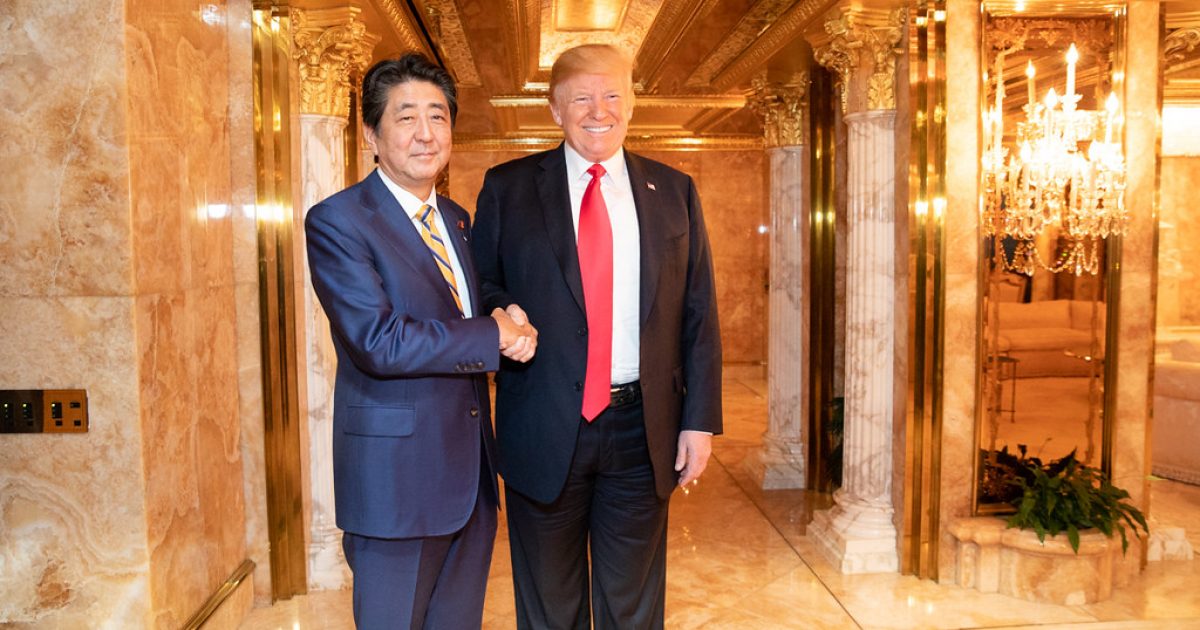
Last Wednesday, June 26, 2019 President Donald Trump criticized a post-World War II defense treaty that America has with Japan right before he departed for the G-20 Summit in Osaka, Japan.
He described the agreement as “imbalanced”.
When asked by the Fox Business Network about potential trade plans with Japan, India, and other countries in Southeast Asia, Trump immediately pivoted the discussion to unfair military agreements.
Trump remarked “Let me start off with a general statement.”
He continued, “Almost all countries in this world take tremendous advantage of the United States. It’s unbelievable.”
Trump specifically singled out a treaty that America has with Japan:
We have a treaty with Japan. If Japan is attacked we will fight World War III. We will go in and we will protect them and we will fight with our lives and with our treasure.
The President highlighted what America’s obligations would look like in the case that Japan is attacked by rogue actors:
“We will fight at all costs. But if we’re attacked Japan doesn’t have to help us at all. They can watch it on a Sony television, the attack,” he said, referring to the Japanese company.
This critique of America’s agreement with Japan comes on the heels of a Bloomberg report that detailed how Trump had privately suggested the idea of withdrawing from the defense treaty with Japan. This treaty was signed more than six decades ago after World War II ended.
In the past, Trump has complained about the fiscal responsibility that America has had to shoulder in certain defense pacts such as NATO, which has spurred decent reforms in getting NATO members to pitch in more for defense spending.
Trump is correct in his assessment that the U.S. has had to serve as the de facto “word police”.
One of the strong points of his campaign was his call for a more restrained foreign policy that would gradually put the U.S. on the path to non-interventionism.
The current status quo of defense policy does not advance American interests, but it sure does protect the bottom line of defense companies. Trump should be commended for raising awareness on the burdensome role that the U.S. has had to assume since the end of World War II.
With World War II over and the Soviet Union collapsing, countries across the globe should start paying for their own defense functions.
America can no longer afford to bail out countries who refuse to defend themselves.



